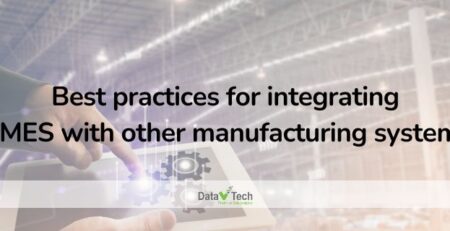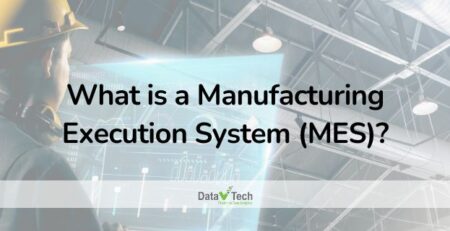Make a critical impact on your company’s manufacturing processes and overall efficiency by selecting the perfect Manufacturing Execution System (MES). Discover the key factors to consider when choosing a MES, from assessing integration capabilities to evaluating user-friendliness, data security, and more. With our comprehensive guide, you’ll gain insights into how to align your business needs and goals, ensuring optimal performance and success in your manufacturing operations. Maximize your potential today!
Understand your business needs
Identify your specific manufacturing requirements and objectives. Consider factors such as production volume, complexity, process variation, regulatory compliance, and scalability.
Evaluate vendor expertise and support
Research and evaluate potential MES vendors’ experience, reputation, and expertise. Consider their track record, industry knowledge, and customer references. Additionally, assess the level of support and services the vendor provides during the implementation and post-implementation phases.
Integration capabilities
Assess the ability of the MES to integrate with existing systems, such as Enterprise Resource Planning (ERP), Supply Chain Management (SCM), and other manufacturing systems. Seamless integration with these systems ensures data accuracy and consistency and facilitates information flow across the organization.
Scalability and flexibility
Consider the scalability and flexibility of the MES to accommodate future growth, changes in manufacturing processes, and technological advancements. Ensure the MES adapts to evolving business needs without significant disruptions or costly modifications.
User-friendliness and ease of implementation
Evaluate the user interface and usability of the MES. An intuitive and user-friendly interface simplifies operator training and system adoption. Additionally, consider the implementation process, including the deployment timeframe and potential disruptions to ongoing operations.
Data security and compliance
Assess the security measures implemented in the MES to protect sensitive manufacturing data. Consider compliance requirements, such as regulatory standards (e.g., FDA regulations in the pharmaceutical industry), data privacy laws (e.g., GDPR), and industry-specific regulations. Ensure that the MES meets the necessary security and compliance standards.
Total cost of ownership (TCO)
Evaluate the total cost of ownership of the MES, including upfront costs, ongoing maintenance and support fees, and potential customization or upgrade expenses. Consider the return on investment (ROI) and long-term value the MES will provide to justify the costs.
Training and support:
Assess the training and support options provided by the vendor. Consider the availability of user documentation, training materials, and technical support resources. Adequate training and ongoing support are essential for successful MES implementation and user adoption.
Implementation strategy and timeline
Define a clear implementation strategy and timeline for the MES deployment. Consider system configuration, data migration, testing, and user training, among other factors. A well-planned and phased implementation approach can minimize disruptions and ensure a smooth transition.
Change management
Implementing a MES involves organizational change. Consider the impact on employees, workflows, and organizational culture. Develop a change management plan, including communication, training, and engagement strategies to facilitate the adoption of the MES within the organization.
Finding the perfect MES solution for your business can be a daunting task for the multitude of factors to consider. It requires a comprehensive evaluation of your business needs, vendor expertise, integration capabilities, scalability, user-friendliness, data security, total cost of ownership, training and support options, implementation strategy, and change management. However, making an informed decision is crucial to ensure that the selected MES aligns perfectly with your manufacturing requirements, supports future growth, integrates seamlessly with existing systems, ensures data accuracy and compliance, provides a positive user experience, and offers robust support and training. A well-planned implementation approach is also essential to minimize disruptions. With the right MES, your organization can unlock the potential to enhance manufacturing efficiency, streamline processes, and achieve long-term success.
To explore the MES solutions tailored to your business needs, we invite you to book a free consultation with our experts. Data V Tech will guide you through the selection process and help you find the MES solution that optimizes your manufacturing operations. Don’t miss this opportunity to take your business to new heights. Schedule your free consultation today!











